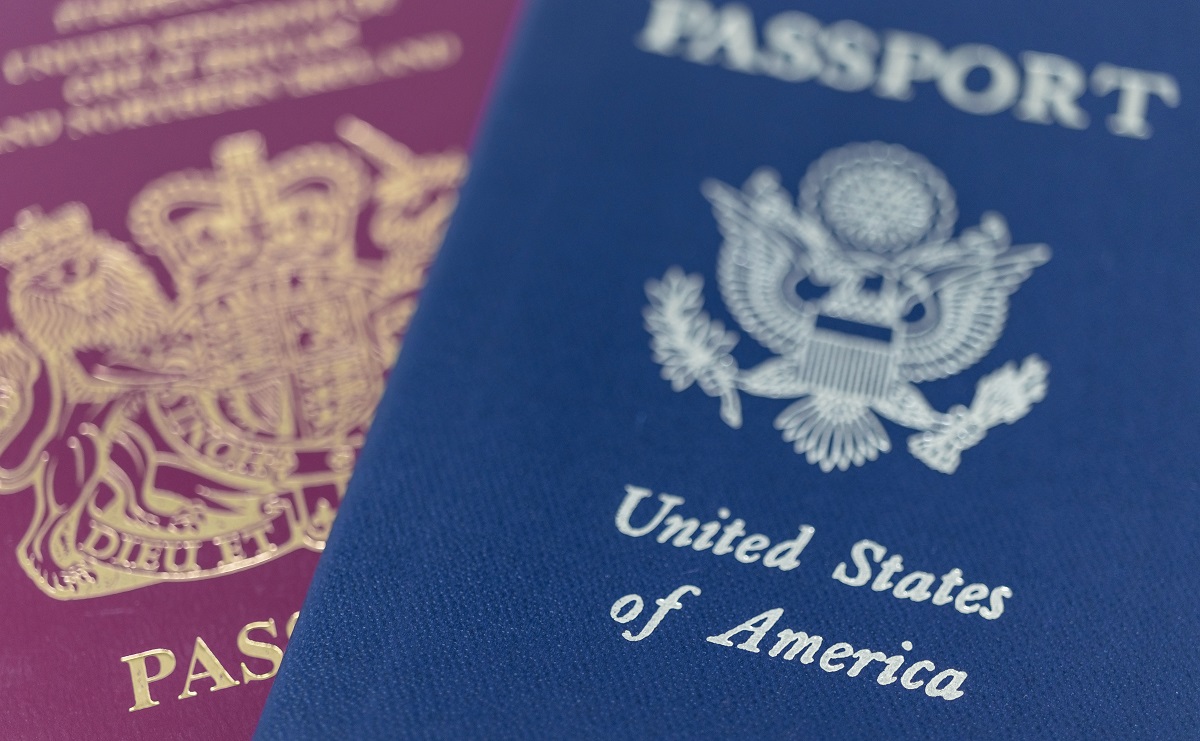
There are some significant differences between permanent residence and U.S. citizenship. While sometimes the terms get used interchangeably, they are not the same. When comparing permanent residence vs citizenship, green card holders are “permanent,” but it’s not as secure as U.S. citizenship. We analyzed permanent residence vs citizenship.
If you were granted permanent resident status in the United States, you have a permanent resident card (green card) and have the privilege of living and working inside the U.S. indefinitely. However, there are some limitations. These important differences affect your rights and responsibilities.
U.S. citizenship is forever. It provides increased security and protections from misfortune. While there are certainly patriotic reasons for naturalizing as a U.S. citizen, there are also some significant advantages.
Get Protection from Deportation
Few of us expect to be arrested for a crime. But what if you were? The U.S. government can revoke permanent residency. However, U.S. citizenship is good for life. Many crimes can result in deportation of a permanent resident or at least create major (and expensive) problems just to renew a green card. Citizenship cannot be revoked unless there is substantial evidence of a crime against the state.
Permanent residents must live in the United States, but U.S. citizens may live anywhere in the world. While green card holders may travel freely and return to the U.S., they must be mindful of their time outside the United States. Generally, permanent residents who are outside the United States for more than a year will lose their green card status. In fact, shorter trips can lead to abandonment of permanent residence in some circumstances. There are additional protections for those who obtain a reentry permit. On the other hand, citizens can live outside the U.S. for several years or even permanently.
Affect Your Political Leadership
Only U.S. citizens can vote in federal elections. The vast majority of states also restrict the right to vote, in most elections, to U.S. citizens.
Democracy and the right to make your opinion count are some of the key features that make the United States exceptional. U.S. citizens have the ability to change leadership and affect changes on issues such as healthcare, economic issues and immigration policy.
Give Your Family More Opportunity
Both permanent residents and U.S. citizens have the privilege of helping certain relatives immigrate. However, permanent residents are limited to assisting spouses and unmarried children in the family preference categories. The preference categories generally have a wait time. Permanent residents cannot petition married sons and daughters, parents or siblings.
On the other hand, U.S. citizens can petition all of these relationship types. In fact, there are an unlimited number of immigrant visas available to the immediate relative categories. Immediate relatives are the spouse, unmarried children (under age 21), and parents of U.S. citizens. That means there is no wait time for a green card. What's more, there are certain exemptions to grounds of inadmissibility for immediate relatives, making it easier to obtain a green card for some.
Enhance Your Employment and Income
Naturalization is associated with improved economic outcomes, such as higher incomes and home ownership. In other words, there's evidence of financial improvement for permanent residents who choose to become U.S. citizens. The Migration Policy Institute found that naturalized citizens have higher rates of employment and have average incomes between 50 and 70 percent more than noncitizens. Their research also suggested that naturalized citizens weathered the effects of economic crisis more successfully than their noncitizen counterparts.
There are more job opportunities for citizens. Most jobs with government agencies require U.S. citizenship. By law, employment at most U.S. government agencies, is limited to U.S. citizens.
Finally, you won't have to worry about missing employment opportunities because of a lost permanent resident card.
Travel More Easily and Inexpensively
Traveling with a U.S. passport will allow you entry into most countries around the world without a hassle. In fact, U.S. passport holders have no visa requirement or free visa access in more than 100 countries through the Visa Waiver Program. Additionally, U.S. citizens in need of emergency assistance while overseas can contact the nearest U.S. embassy or consulate for help.
Travel can be a bit more cumbersome for permanent residents. You'll likely need to obtain a visa to enter most countries. Generally, you'll also need to have a valid, unexpired green card to reenter the United States. Losing a green card while traveling abroad can be very expensive and time-consuming to resolve.
Celebrate Your New Home
As a permanent resident, you enjoy many of the advantages that living in the United States has to offer. By becoming a U.S. citizen, you declare your love for the United States and become culturally ingrained in American society.
It's also not necessary to renounce your citizenship with another country. In other words, the United States does not force you to abandon your current nationality. U.S. law does not require a person to choose one nationality or another.
Permanent Residence vs Citizenship: Cost Comparison
Perhaps you're already a permanent resident, and it's almost time to renew your green card. You definitely don’t want to pay the renewal fee again, but you’re not sure if you’re ready to become a U.S. citizen.
USCIS has a fee either way. You can pay to renew your green card, but you’ll have to do it again in another 10 years (or sooner if you lose your card). On the other hand, you can pay for naturalization and gain the rights of U.S. citizenship. Citizenship is valid for a lifetime, and you won’t ever have to pay another USCIS fee again!
If you have permanent resident children under the age of 18 living with you, they automatically become U.S. citizens when you naturalize. There's no extra cost, and it will save them significantly over their lifetimes.
Applying for Citizenship is Easier Than You Think
There are major differences when comparing permanent residence vs citizenship. Maybe you’re satisfied living as a permanent resident and concerned about the requirements to become a U.S. citizen. You know there are benefits. But are they worth it? And what about the complicated immigration forms — will an immigration attorney be necessary?
Whether you want to continue renewing your green card or apply to become a U.S. citizen, you want to be sure you are doing the right thing at the right time, and you have access to sound immigration advice. When you use CitizenPath, you can be sure you will have support in completing your application every step of the way. And because we’re online, you can prepare your application from the comfort and safety of your own home.
Our software is designed by immigration attorneys to ensure accuracy, and it alerts you of any problems or missing information. What's more, your customized filing instructions will provide a checklist of support documents to make your package complete.
We are so sure that our software is the best possible way to complete your USCIS application that we have a Satisfaction and an Approval Guarantee. If USCIS denies your application, you get your USCIS fees AND our service fee back.
Take the guesswork out of your immigration application and prepare your Naturalization Application Package through CitizenPath. Start preparing your application today and don’t pay until you’re good to go.
Want more immigration tips and how-to information for your family?
Sign up for CitizenPath’s FREE immigration newsletter and
SAVE 10%
on our immigration services








